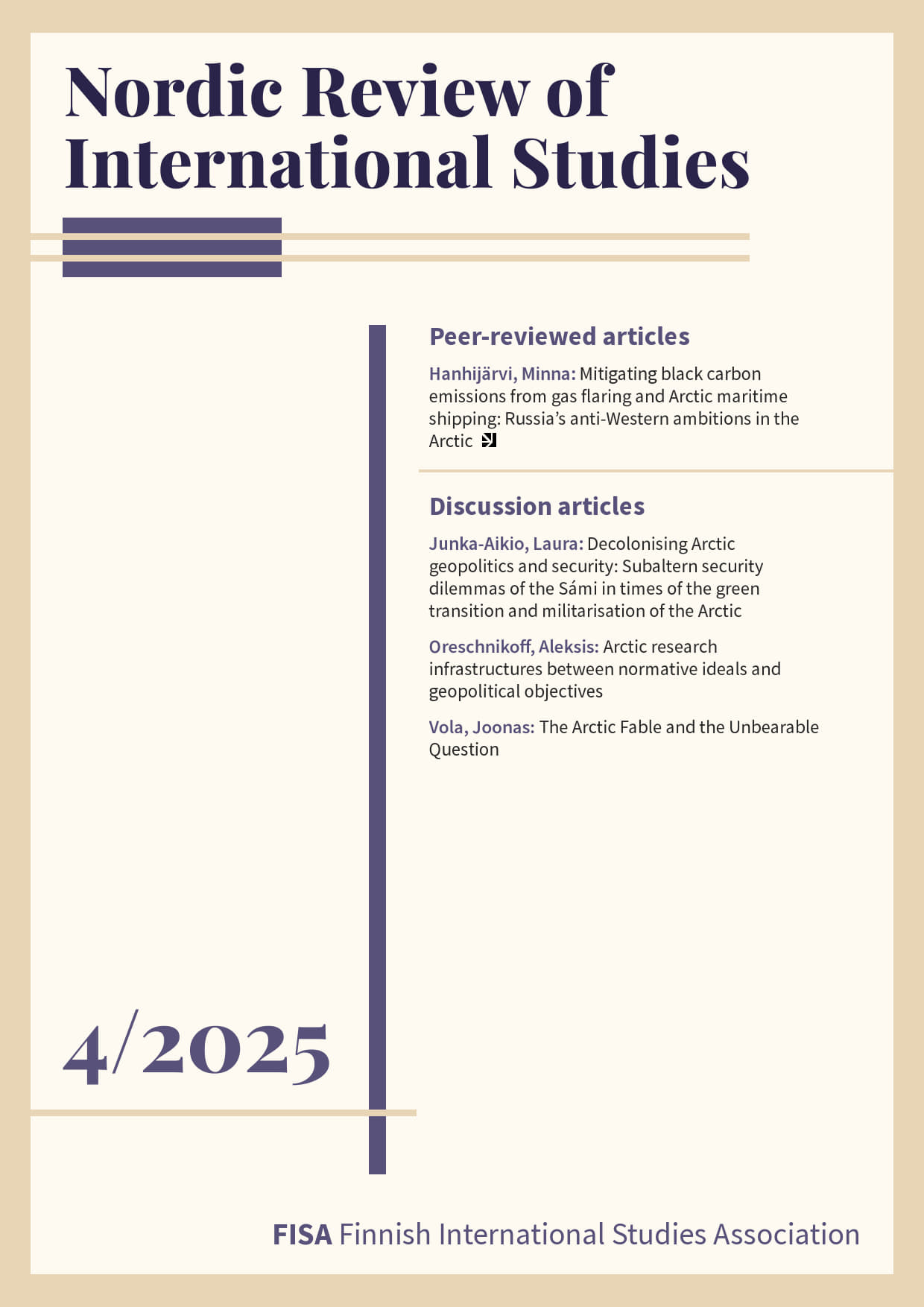Mitigating black carbon emissions from gas flaring and Arctic maritime shipping
Russia’s anti-Western ambitions in the Arctic
Keywords:
Arctic, Arctic Council, black carbon, climate change, emissions, illiberalism, Russia, Ukraine warAbstract
The Arctic region and Russia, the major emitter of greenhouse gases, are facing effects of climate change faster than the rest of the world. Evidently, climate change and adoption to it will shape Russia’s future, and vice versa, regardless of who or what kind of a government is in power. This includes addressing the problem of black carbon and other short-lived climate pollutants from hydrocarbon industry and maritime shipping in the Northern Sea Route accelerating climate warming, with harmful effects on air quality, ecosystems and human health. Drawing on insights of international relations literature, this article examines conceptualisations of illiberalism, illiberal environmentalism and their contemporary versions in Russia, and discusses how these frameworks can be applied to understand Russia’s policy choices regarding climate change and the Arctic since the invasion in Ukraine in February 2022 and considers prospects for post-war Arctic collaboration. It finds that these conceptualisations when carefully contextualised help to identify ideational underpinnings intertwined with national interests in policy texts and illuminate connections to societal beliefs held by Russian conservatives and indicate authoritarian and illiberal practices guiding policymaking and implementation. Post-war international collaboration among climate scientists is viewed as worth pursuing, and perhaps essential, to mitigate Arctic warming.
Downloads
Published
Issue
Section
Categories
License
Copyright (c) 2025 Minna Hanhijärvi

This work is licensed under a Creative Commons Attribution-NonCommercial-NoDerivatives 4.0 International License.
License Terms
-
Attribution — You must give appropriate credit, provide a link to the license, and indicate if changes were made. You may do so in any reasonable manner, but not in any way that suggests the licensor endorses you or your use.
-
NonCommercial — You may not use the material for commercial purposes.
-
NoDerivatives — If you remix, transform, or build upon the material, you may not distribute the modified material.





